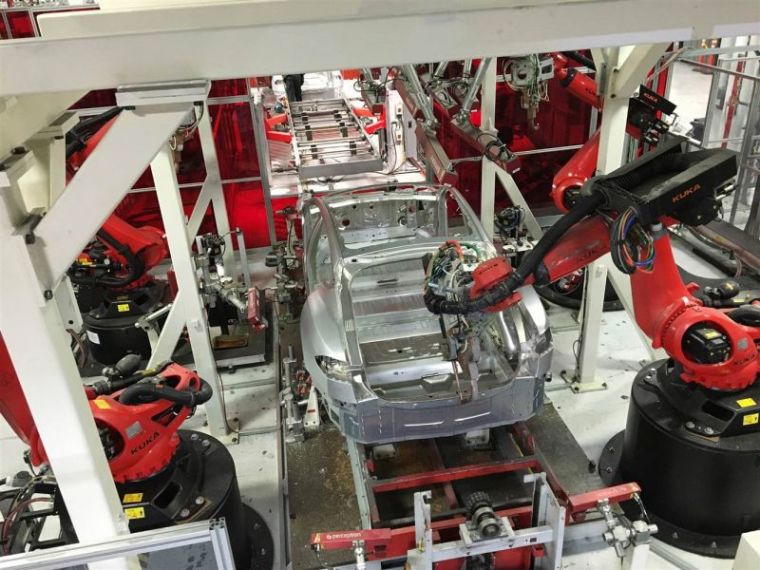“But that crisis wasn’t a one-off; it was the result of centuries of corruption of capitalism that turned it into the most destructive force for the planet and humanity. Only returning capitalism the pureness of its roots will save us.”
Barnes discovered the origins of capitalism in the breakdown of feudalism that morphed into mercantilism which also collapsed and produced capitalism. In other words, capitalism is an accident. Barnes doesn’t explain why such accidents didn’t happen earlier or in other more advanced empires, such as China and the Ottoman Empire. Good economic historians know that theologians during the Reformation distilled the principles of capitalism from natural law and the Bible. The Dutch Republic first implemented those principles and created the first capitalist nation. It was no accident.
Barnes’ chapter on Adam Smith is his best. He refers to Smith’s system of natural liberty as “sublime.” Then the invention of the steam engine gave birth to the Industrial Revolution where capitalism ran off the tracks. Barnes describes it this way in Chapter 4:
“People including children, worked for exceedingly long hours, seven days per week, often in cramped, uncomfortable, and dangerous environments. Homes were little better: entire families sometimes lived eight to a room, with no central heating or plumbing, open sewers, no electricity, no access to healthcare, no schools, and barely enough wages to live on.”
This is one of the worst parts of the book. Most Americans and British didn’t get electricity in their homes until the 1920s. New York City didn’t have sewers until 1902. Central heating didn’t appear in the U.S. and U.K. until after World War II. The rich didn’t enjoy those luxuries during the industrial revolution so the poor could not have, either.
As for the wages being poor, Barnes never wonders why thousands of people abandoned their idyllic lives in the countryside for the horrible conditions in factory towns. Were they morons? It never occurs to Dr. Barnes that factory workers might have been rational and left worse conditions for better ones. F.A. Hayek explained in Capitalism and the Historians that the numbers of the poorest people, those without skills and tools, had been kept small because most couldn’t afford to marry and those who did bore few children. Many starved. They were invisible to the nobility because they performed manual labor in rural areas. But their numbers exploded with the opportunities to work in “miserable” factories because they could afford to marry and have children and fewer starved to death.
Unfortunately, Barnes quotes only two economists, Adam Smith and the socialist Thomas Piketty. So, the book is a parade of historians, sociologists and other socialists complete with banging cymbals, blaring trumpets and goosestepping performers harmonizing on the evils of capitalism. Barnes never questions any of the socialists’ fake history or false economics. He devoted a chapter Marx, but of the disasters of the Soviet Union, Eastern Europe and China, he merely notes that those implementations of socialism didn't work out well.
In addition to U.S. recessions, Barnes is concerned about global inequality, claiming that the rich North exploits the poor South:
“The avarice and hedonism that drives much of capitalism today has led to huge disparities of wealth and an almost palpable contempt for the poor. Supported by a narrative that distorts liberal economic orthodoxy, governments have colluded with the super-rich to perpetuate the false notion that wealth concentration and economic excesses are necessary evils to be tolerated in order to ensure the efficacy of the free market.”
“Since the end of World War Two, much of the wealth disparity between the global north and the global south has been the result of wealthy countries taking economic and political advantage of poorer countries. It simply has to stop. Similarly, the environmental damage done by wealthy countries often takes a disproportionate toll on the health, wellbeing, and security of poorer countries. This too must stop.”
But Barnes doesn’t know that countries are poor because their governments are corrupt and/or socialist or that slightly freer markets in Asia lifted over 500 million from starvation in the past generation.
Barnes argues that modern capitalism is the most destructive force on the planet. After many chapters detailing capitalism’s destruction on the level of a category 5 hurricane, readers expect solutions equal to the enormity of the evil. But as with most theologians who write about economics, his solutions are anemic. He urges nothing more than for people to act more like Christians. He devotes one chapter to faith, hope and love. He wants workers to see their jobs as vocations. Other chapters promote prudence, justice, courage, temperance, wisdom and common grace. Barnes’ mountain gave birth to a mouse.
For the problems of massive government and private debt, recessions, inflation and stock market crashes, he recommends people save more and create more non-profit banks for the poor such as the Grameen Bank in Bangladesh. While honorable, Barnes fails to mention that while the Grameen Bank has helped a few individuals, the impact on the nation is too small to measure after many decades.
In Chapter 13, Barnes claims that the purpose of capitalism morphed from subsistence to acquisition in the Industrial Revolution to consumption today.
“The general purpose of virtuous capitalism, then, is neither wealth accumulation nor conspicuous consumption but a genuine desire to see the power of free markets used for the purpose of human flourishing. By flourishing I mean wellbeing in all of its forms – economically, socially, spiritually, physically, and politically. In other words, capitalism would once again be the servant, not the master, of humankind.”
If free markets create wealth, as Barnes says, what should we do with that wealth if we don’t consume it? Should we pile it up and burn it? Should we destroy it in wars as we have in the past? Barnes doesn’t say. I’m guessing he would want us to live at subsistence levels and give the excess to the poor. But that’s what Christians did from the time of Christ until the advent of capitalism and it kept 95% of the population poor and on the edge of mass death due to starvation from famines.
If we don’t consume what we produce, where will the revenue come from to keep production going? Equipment must be replaced when worn out. Businessmen must buy materials for workers to transform into goods and they must pay wages. Where will the money to pay those bills come from is no one buys the products they make? Barnes doesn’t know.
Barnes doesn’t want to redistribute wealth as socialists demand, but if we don’t redistribute the wealth of those who take risks, work hard and innovate, people whom Barnes admires, those rare people will end up with all of the wealth. The distribution of wealth will be much like that of today, which Barnes thinks is evil. He doesn’t see that we must redistribute wealth through socialism or inequality will raise its ugly head again. But then we will motivate laziness and drug and alcohol abuse, as Christians have warned for centuries about indiscriminate charity.
As for Barnes’ assertion that greed caused the Great Recession, no credible economist would agree. That is an explanation favored only by the media and public. To believe it, people must think that greed explodes to unmanageable levels every six to ten years. The best analysis shows that Federal Reserve inflationary policies cause unsustainable booms than end in recessions.
Barnes’ “capitalism” is a straw man sewn together by socialists. But letting socialists define capitalism is as wise as letting atheists define Christianity. Theologians like Barnes need to stop being so lazy and learn real economics and economic history.
If you’re looking for a collection of socialists defeating the straw man version of capitalism they invented, Barnes’ book is one of the best.



